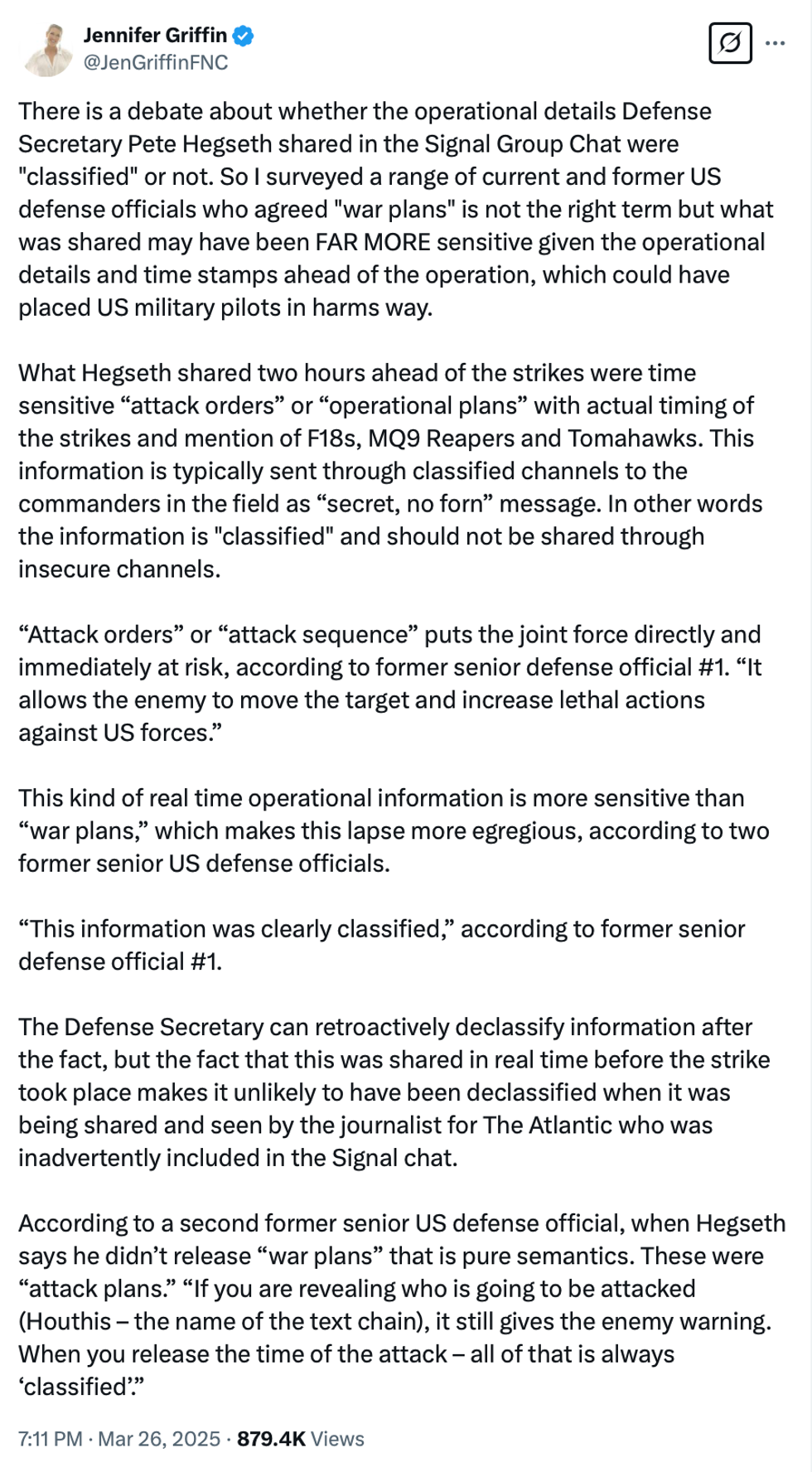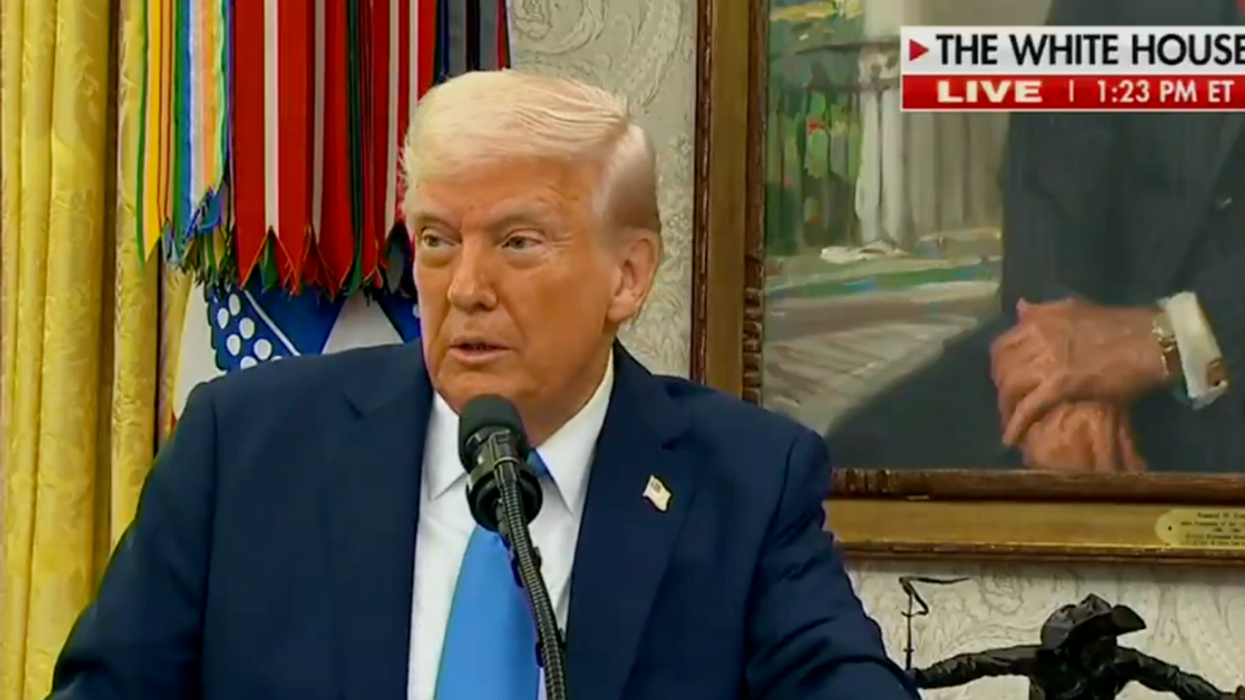Fox News’s chief national security correspondent Jennifer Griffin shared concerning insight on the "classified" military strategy information that Secretary of Defense Pete Hegseth shared in a Signal group chat with Republican President Donald Trump’s high level officials, and inadvertently, with The Atlantic editor-in-chief, Jeffrey Goldberg.
Goldberg released a full transcript of the Signal thread, revealing that officials discussed military strategy tied to their war strikes on Houthi rebels in Yemen, which Hegseth downplayed and accused the media of "peddling hoaxes," claiming that no "war plans" were shared.
Endeavoring to settle the debate on whether or not the information was "classified," Griffin shared a lengthy commentary of her findings on X (formerly Twitter) on Wednesday after she surveyed current and former defense officials.
Despite White House press secretary Karoline Leavitt insisting that there were "no classified material" on the thread, Griffin found that what was discussed on the direct messaging app used by US officials was "far more sensitive" due to the specific details "given the operational details and time stamps ahead of the operation, which could have placed US military pilots in harm's way."
The journalist, who has been reporting daily from the Pentagon since 2007, explained:
"What Hegseth shared two hours ahead of the strikes were time sensitive 'attack orders' or 'operational plans' with actual timing of the strikes and mention of F18s, MQ9 Reapers and Tomahawks."
"This information is typically sent through classified channels to the commanders in the field as 'secret, no forn' message."
"In other words the information is 'classified' and should not be shared through insecure channels."
Griffin maintained that the information shared regarding the US military strikes in Yemen could have risked the lives of many Americans.
You can see her full post below:
She continued to break down examples of the combative jargon used in the group chat, writing:
“ 'Attack orders' or 'attack sequence' puts the joint force directly and immediately at risk, according to former senior defense official #1. 'It allows the enemy to move the target and increase lethal actions against US forces.' ”
"This kind of real time operational information is more sensitive than 'war plans,' which makes this lapse more egregious, according to two former senior US defense officials."
Griffin said that, according to a former senior defense official she spoke to, the information "was clearly classified."
She also noted that Hegseth could retroactively "declassify information after the fact," but it was highly unlikely after Goldberg was mistakenly added to the group chat and he saw and released its contents.
“According to a second former senior US defense official, when Hegseth says he didn’t release 'war plans' that is pure semantics," the journalist said, adding:
"These were 'attack plans.'
Griffin concluded her statement with:
“If you are revealing who is going to be attacked (Houthis – the name of the text chain), it still gives the enemy warning. When you release the time of the attack – all of that is always ‘classified’.”
The Trump administration, including Hegseth and national security adviser Mike Waltz, alleged they did not share classified plans to strike Houthi targets in the Signal discussion.
On Wednesday, Hegseth alleged in an X rant that there were "No names. No targets. No locations. No units. No routes. No sources. No methods. And no classified information."
He also claimed that Goldberg "has never seen a war plan or an 'attack plan' (as he now calls it). Not even close."
Griffin's reporting would certainly call that into question.









 @PreetBharara/X
@PreetBharara/X @RepBrendanBoyle/X
@RepBrendanBoyle/X @twesq/Bluesky
@twesq/Bluesky @christopherharris/Bluesky
@christopherharris/Bluesky @evangelinewarren/X
@evangelinewarren/X






 @FrankC164/X
@FrankC164/X
 AMC
AMC